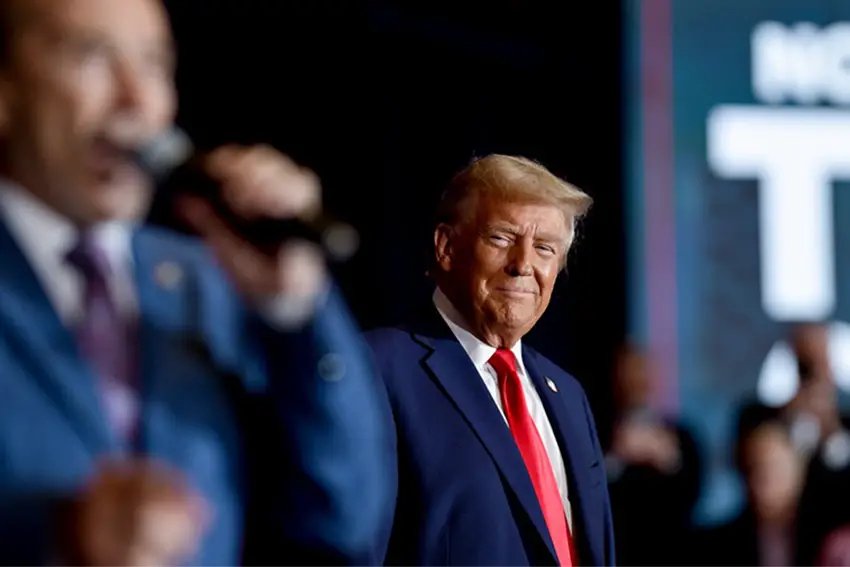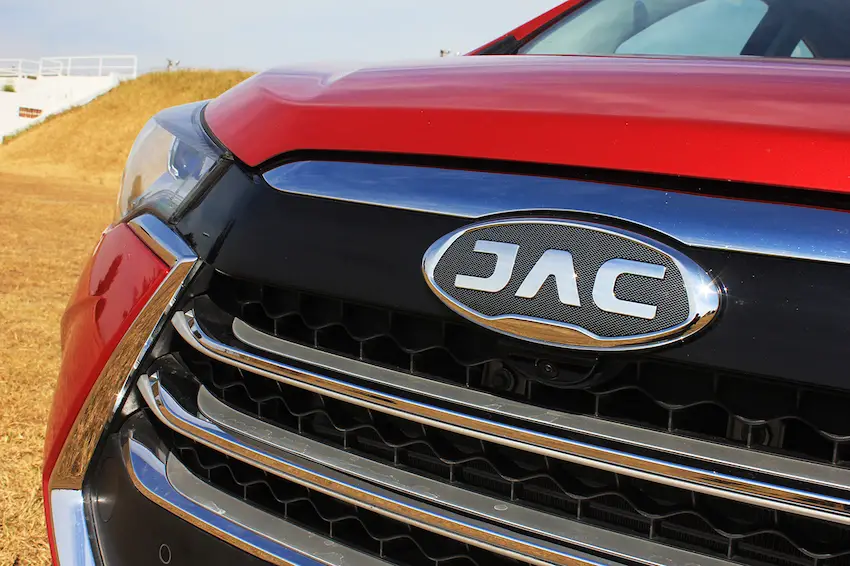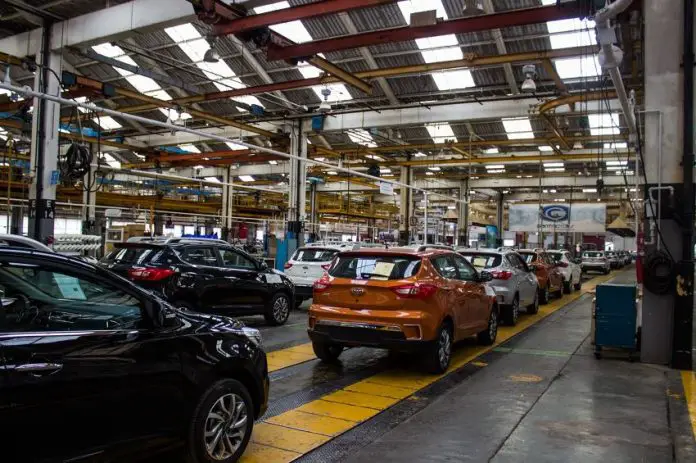The CEO of the only company that makes Chinese vehicles in Mexico is unfazed by the possibility that new tariffs could be imposed on Mexican exports and imports of foreign goods to Mexico.
Elías Massri, chairman of the board and CEO of Giant Motors Latinoamérica, spoke to the Bloomberg news agency about Donald Trump’s threats to slap tariffs on Mexican exports as well as the possibility that Mexico could impose new or additional duties on imports from countries such as China.

Still, Massri told Bloomberg that “if they change the rules, we are ready to play by them.”
He noted that Giant Motors has already survived tariffs imposed by the first Trump administration in 2018 as well as the COVID-19 pandemic.
“There have already been many battles, and we have not stopped investing what is required and earning profits,” Massri said.
According to Bloomberg, the CEO said that “Giant Motors’ ambitions are narrowly focused on the Mexican market, and the company will not be poking the bear by attempting to export vehicles to the U.S.”
Massri also said that if new tariffs were imposed on imports to Mexico — products from China, for example — his company could source auto parts and components from countries that are on favorable trade terms with Mexico. “There are free trade agreements in Mexico with many parts of the world,” he said.

Earlier this year, Mexico implemented new tariffs on hundreds of products — including transport and electrical material — from countries with which it doesn’t have trade agreements. That move appeared mainly directed at China. Still, around 10% of all cars sold in Mexico in the first 10 months of this year were made by Chinese automakers.
As Mexico comes under increasing pressure from the United States and Canada over its trade relationship with China and Chinese investment in a range of sectors of the Mexican economy, the Mexican government could increase tariffs on Chinese imports.
It is currently pursuing an import substitution plan to reduce reliance on Chinese imports, and last week demonstrated that it is prepared to take strong action against counterfeit Chinese goods when it carried out a raid on a Chinese-operated wholesale shopping complex in Mexico City.
Giant Motors wants to grow, but will more Chinese cars be made in Mexico?
Bloomberg reported that Giant Motors began manufacturing JAC vehicles in Mexico in 2019, when production totaled about 8,000 units. It started selling JAC cars in 2017, before vehicles made by other Chinese automakers such as BYD and SAIC were available in Mexico.
JAC, officially called Anhui Jianghuai Automobile Group Corp., is based in the Chinese province of Anhui.
Giant Motors, Bloomberg reported, “buys completely knocked-down kits from JAC in China and adjusts the design of the cars and trucks at its plant to meet the needs of the local market.”

Massri explained that his company makes vehicles with higher suspension and powerful engines to ensure they are suitable for hilly terrain and potholed roads in Mexico.
Production this year is expected to be 30,000 vehicles, with output anticipated to increase to 40,000 units in 2025. Giant Motors’ plant in Ciudad Sahagún, located about 90 kilometers northeast of central Mexico City, has the capacity to assemble 60,000 vehicles annually.
“We are not satisfied with our size. We want to be bigger,” Massri told Bloomberg.
While JAC vehicles are made in Mexico by a Mexican company, some Chinese automakers have announced plans to build their own plants in Mexico. They include BYD, MG Motor and Chery, whose announcements caused — and continue to cause — concern in the United States and Canada.
Although a number of Chinese automakers have announced plans to establish a manufacturing presence in Mexico, none of them has a “firm investment project” here, President Claudia Sheinbaum said last Thursday.
The Chinese automaker that has received the most attention about its plans in Mexico is BYD, the world’s largest electric vehicle (EV) manufacturer. BYD has said that it is aiming to settle on a location for its proposed plant by the end of the year.
The Shenzhen-based company says that it will make vehicles in Mexico purely for the Mexican market, but there is speculation that its ultimate aim is to export vehicles from Mexico to the United States, which currently allows products made in Mexico to enter the country tariff-free in accordance with the provisions of the USMCA trade pact.
The possible imposition of U.S. tariffs on all Mexican exports, all vehicles made in Mexico or specifically vehicles made in Mexico by Chinese companies may be causing BYD and other Chinese automakers to rethink their plans, and could be a key reason why they have made scant progress on their proposed projects since they first announced them.
With reports from Bloomberg
